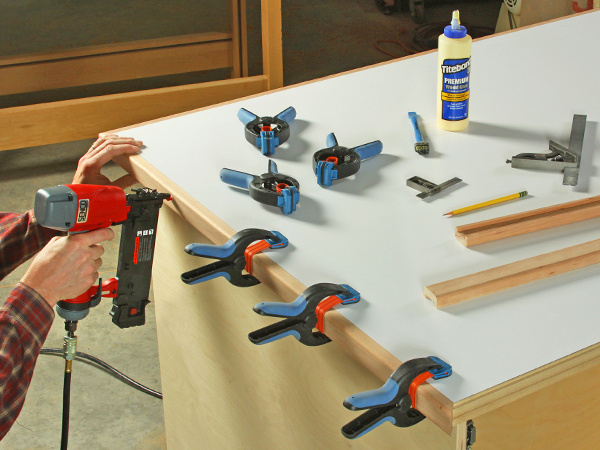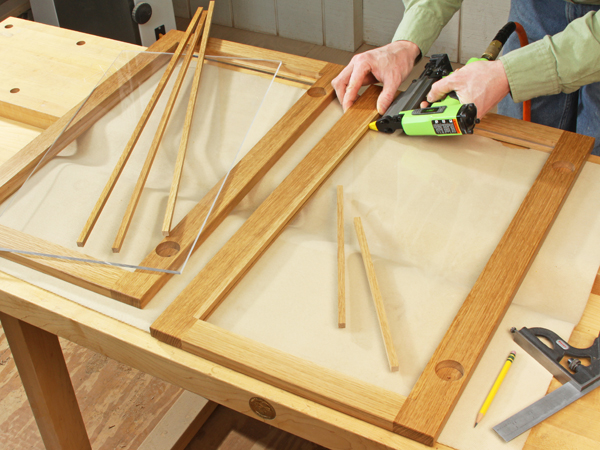
I am searching for information and recommendations regarding nail guns and what type and size pneumatic nail gun, pin nailer, etc., that I should start out with. I know the first question is: What do you want to do with it? However, is there a listing or comparison chart somewhere to help prospective buyers get a basic idea of what projects each nailer is capable of doing? – Glenn Hamberg
Chris Marshall: Maybe someone in our readership who’s more web-savvy than me can suggest a nailer comparison chart link for you Glenn. But, I can certainly offer my two cents in terms of which nailers I find most useful in my woodworking. And, it’s very simple advice, because for me it all boils down to just two types of guns: a brad nailer and a pin nailer.
The best brad gauge for woodworking is 18-gauge. The nails are strong enough to tack larger parts together, attach face frames, build jigs … you name it. They work well for installing trimwork around the house, too. And, their heads aren’t so large that they’re difficult to conceal with a little putty when the need arises. I think most woodworkers reading this who use pneumatic nail guns will agree with me here. Eighteen-gauge brad nailers are our all-around workhorses for medium-duty nailing jobs.
My second gun recommendation is a 23-gauge pin nailer. It shoots, quite literally, stick-pin-thickness nails that all but disappear in the wood as soon as you drive them. They’re terrific for tacking finer, thinner moldings and glass retainers in situations where seeing evidence of putty is a real concern, or where the wood just won’t support a stouter 18-gauge brad. But, in all honestly, I don’t reach for my pin nailer nearly as often as I do a brad nailer. I would put it lower on the “must have” list, but when your budget will allow for it, a pin nailer can be handy to have indeed.
For both types of guns, here’s one last bit of advice: choose a model that shoots the widest range of nail lengths possible. Typically, that will amount to a 5/8- to 2-in. fastener range. You just never know when you’re going to need either long or short fasteners, so why not cover your bases when you first buy the tool? You won’t regret it, even if the cost for the gun is higher than for one that shoots a more modest range of nail lengths.






